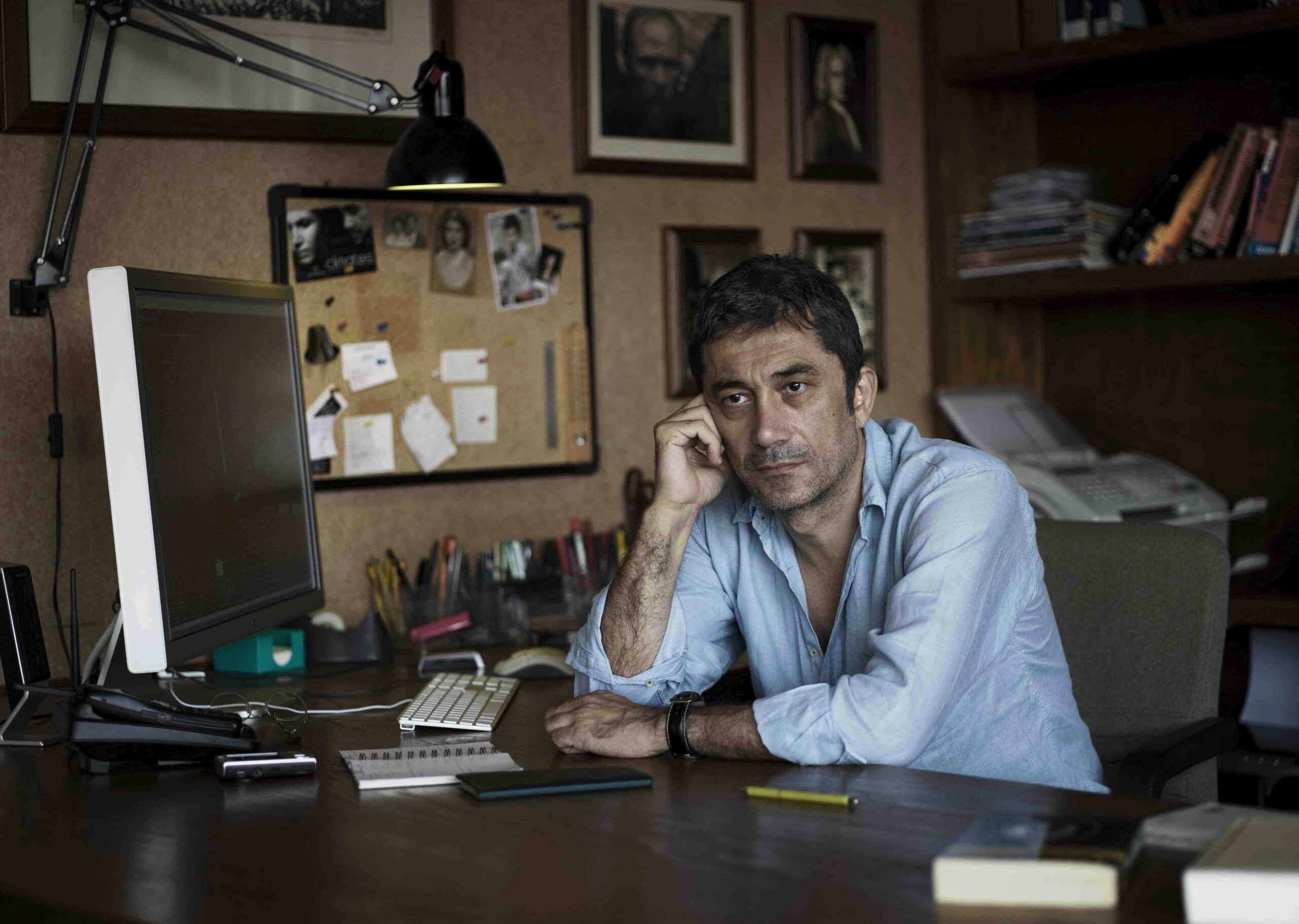CANNES, FRANCE—Nuri Bilge Ceylan won the Palme d’Or at the 67th Cannes Film Festival for “Winter Sleep,” a 196-minute, Chekhov-inspired portrait of a curmudgeonly hotelier (Haluk Bilginer) who’s gradually confronted with the damage his stubbornness and lack of generosity have caused to his family and world.
Ceylan has long been a Cannes favorite, having won the second-place Grand Jury Prize twice—for “Distant” in 2003 and “Once Upon a Time in Anatolia” in 2011—as well as Best Director for “Three Monkeys” in 2008. “I want to dedicate the prize all the young people of Turkey, including those who lost their lives,” Ceylan said in a short acceptance speech, alluding to the protests of the last year.
The longest film in competition by far, “Winter Sleep” came in with high expectations. Reactions spanned across the board, with Barbara Scharres writing that the movie’s “payoff never materialized,” while others—including this critic—found the movie’s slow revelation of character detail quietly devastating. The film was an awards favorite from the get-go, signaling its ambition through its length and austerity. Indeed, Ceylan’s opus tackles ideas of solitude and regret in a register that evokes Ingmar Bergman.
This year’s Grand Jury Prize went to Italian director Alice Rohrwacher’s “The Wonders,” a keenly observed portrait of a family of beekeepers that impressively avoids sentimentality. The Jury Prize—basically third place, but often given to more eccentric works—was split between the 25-year-old Quebecois director Xavier Dolan (“Mommy”) and the 83-year-old Jean Luc Godard (“Goodbye to Language”).
If there was a commonality—other than the implicit statement of honoring youth and experience in a single award—it’s perhaps that both films experimented with form. In “Mommy,” Dolan shoots in an unusually narrow aspect ratio, while in “Goodbye to Language,” Godard pushes the boundaries of 3-D, making innovative use of superimpositions and color.
Godard, as is his wont, wasn’t there, but Dolan thanked jury president Jane Campion and cited her influence on his work. “‘The Piano’ is the first film I watched when I asked my stepmother what I should watch,” Dolan said. “Your ‘Piano’ made me want to write roles for women.”
The first award of the evening was the Best Actor prize, which went to Timothy Spall, considered a frontrunner early on for his portrayal of proto-impressionist painter J.M.W. Turner in Mike Leigh’s “Mr. Turner.” Spall noted his longtime collaboration with the director, and expressed his regret that he couldn’t be present when Leigh’s “Secrets & Lies” won the Palme d’Or in 1996. At the time, Spall was battling leukemia.
Spall’s speech alternated between gratitude and waggishness; the actor said that just four hours earlier, when he received the call to return to the festival, he had been on a boat in Holland with grease on his arm. “There’s an old saying that you can’t put ten pounds of shit into an eight-pound bag, and this film is exactly that,” Spall said, in a line he seemingly meant as a tribute to the hard work involved in the period production.
Best Actress went to Julianne Moore from David Cronenberg’s “Maps to the Stars,” for her portrayal of a self-doubting, volatile actress preparing to reimagine one of her mother’s most famous roles. Screenwriter Bruce Wagner accepted the award on her behalf.
Bennett Miller won Best Director for the lugubrious true-crime story “Foxcatcher,” which is stylistically similar to his “Capote” (2005). The filmmaker dedicated the prize to his trio of lead actors—Steve Carell, Channing Tatum, and Mark Ruffalo—as well as his producer, Megan Ellison.
Best Screenplay went to Andrey Zvyagintsev’s “Leviathan,” one of the last competition films to screen and one perceived as a late awards contender, due to its topicality—it’s a searing indictment of the Russian political machine in a small town—and the fact that it shares many themes in common with “Winter Sleep,” albeit in a slightly more accessible (and shorter) form. The Camera d’Or—the award for best first feature, voted on by a different jury—went to the French movie “Party Girl.”
Journalists watching the ceremony on a live feed in the Salle Debussy often cheer or catcall each award, though most of this evening’s boos and sarcastic claps were reserved for technical glitches, as the visuals cut out for long stretches of time. It wasn’t the smoothest ending for a festival that celebrates the silver screen.
Check out this video of the winners, courtesy of Chaz Ebert & Scott Dummler:
2014 Cannes Segment 6 – RogerEbert.com from The Mint on Vimeo.












